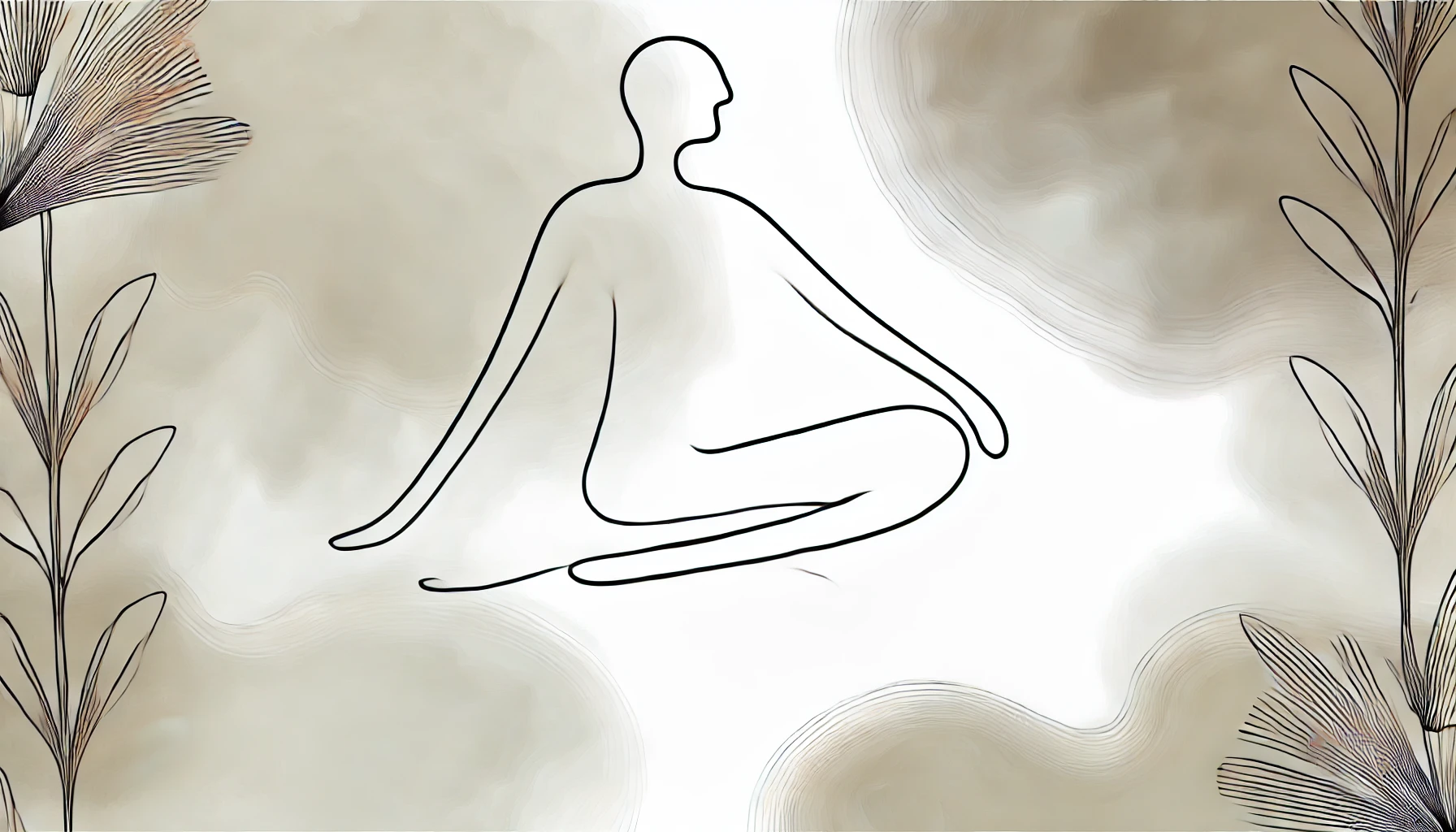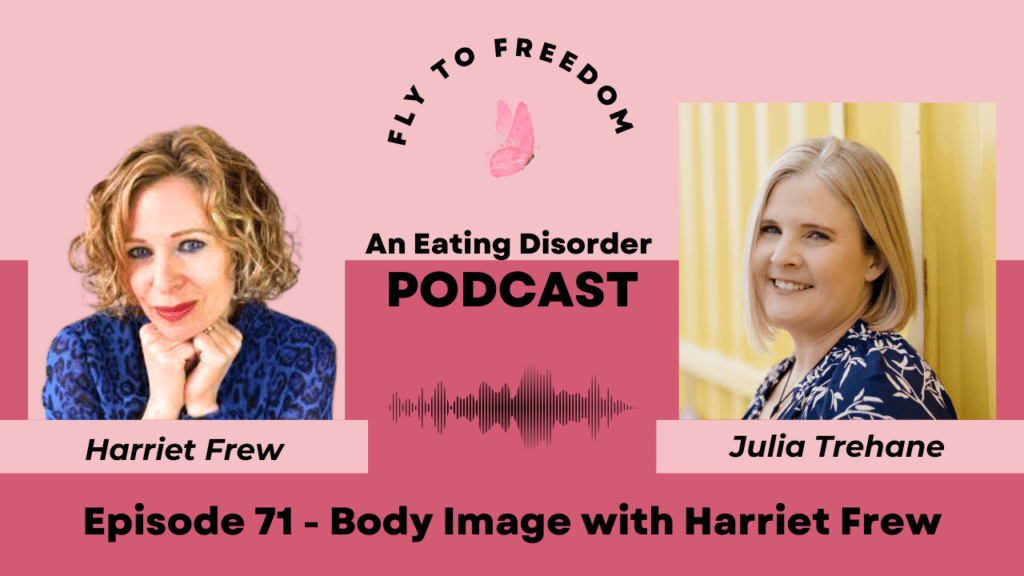Why Body Image is Central to Eating Disorder Recovery
When battling an eating disorder, especially anorexia, having a healthy body image can seem impossible. The critical voice in your head constantly points out perceived flaws, fueling destructive behaviors that aim to manipulate your body to fit an unrealistic ideal. However, lasting recovery requires more than addressing eating habits; it involves making peace with your body and developing a healthier body image.
As an anorexia recovery coach, my mission is to guide you through this transformative journey. My resources, including the “Fly to Freedom” podcast, daily mantras, and personalized coaching, are all designed to support you on your path toward healing and self-acceptance. Let’s explore the science behind body image, self-compassion, and how you can build a healthier relationship with your body.
The Science Behind Body Image and Anorexia
Body image encompasses more than just how you see yourself in the mirror. Research shows that body image is a complex, multi-faceted concept, often heavily distorted in individuals with anorexia and other eating disorders. According to scientific studies, four main aspects contribute to our body image:
- Perceptual: How you physically see your body, which can be distorted in anorexia.
- Affective: How you feel emotionally about your body—these feelings can range from dissatisfaction to disgust.
- Cognitive: The thoughts and beliefs you have about your body’s shape and size.
- Behavioral: The actions driven by your body image, such as avoiding mirrors or restrictive eating.
In the case of anorexia, these distortions are often more severe. A study published in The International Journal of Eating Disorders found that individuals with anorexia tend to have a heightened “perceptual distortion,” meaning they often see themselves as larger than they actually are, even after significant weight loss. This mental image drives harmful behaviors, making recovery a continuous struggle.
Self-Compassion: A Proven Tool for Body Image Healing
One of the most transformative tools in eating disorder recovery is self-compassion. Dr. Kristin Neff, a pioneer in this field, defines self-compassion as treating yourself with kindness, recognizing that suffering is a universal human experience, and practicing mindfulness toward your emotions. For those recovering from anorexia, self-compassion is essential for silencing the harsh internal critic that perpetuates negative body image.
Research supports this approach: A 2015 study in Body Image found that self-compassion is linked to higher body appreciation and less body dissatisfaction. Self-compassion can help you treat your body as a valuable ally, allowing you to step away from harmful comparisons and judgments.
Strategies to Rebuild Body Image During Anorexia Recovery
Improving your body image requires addressing each of the four aspects—perceptual, emotional, cognitive, and behavioral. Here are some science-backed strategies that can help:
- Challenge Perceptual Distortions: Work with a coach to address how you see your body. Cognitive Behavioral Therapy (CBT) has been shown to reduce body image distortions by helping you reframe harmful thoughts. You can also use body scanning exercises, which involve slowly focusing on each part of your body and observing it without judgment.
- Cultivate Self-Compassion: Make it a daily practice to respond to your negative self-talk with kindness. When you notice yourself being critical of your body, ask, “Would I say this to someone I love?” This simple shift, supported by self-compassion research, can gradually change how you view your body. This takes practice but is a cornerstone of recovery.
- Shift Focus from Appearance to Functionality: Start appreciating your body for what it does, not just how it looks. Your body allows you to walk, breathe, hug loved ones, and experience the world through your senses. This shift in focus can lead to a more neutral or positive relationship with your body.
- Avoid Social Comparisons: Studies show that comparing yourself to idealized images on social media exacerbates body dissatisfaction. A 2018 study published in Health Psychology found that participants who limited their exposure to social media experienced an improvement in their body image. Curating your social media to follow body-positive accounts and unfollowing triggers can significantly improve how you feel about your body.
- Engage in Body Neutrality Practices: Instead of forcing yourself to love every aspect of your appearance, aim for body neutrality—a concept that encourages less focus on how your body looks and more on its role in your life. Daily body gratitude exercises can reinforce this shift. For instance, look in the mirror, and choose one body part to appreciate for its functionality, not its appearance.
Taking Action Toward Body Image Healing
Here are five actionable steps you can take to foster a healthier body image during anorexia recovery:
- Notice Negative Self-Talk: When you catch yourself thinking negatively about your body, pause and reflect. Replace the criticism with a self-compassionate response, treating yourself as you would a close friend.
- Practice Gratitude for Your Body: List the amazing things your body does for you, such as allowing you to connect with the world and loved ones. Revisit this list when negative thoughts arise. This is often combined with daily journaling.
- Limit Time in Front of Mirrors: For at least a week, reduce the time you spend scrutinizing your reflection. Notice if this shift decreases your focus on body image.
- Curate Your Social Media: Follow body-positive and diversity-promoting accounts, while removing those that trigger comparison or dissatisfaction.
- Body Gratitude Ritual: Once a day, thank your body for something it does, whether it’s allowing you to walk, dance, or breathe deeply. This simple exercise builds a more positive relationship with your body over time. This can also form part of daily journaling.
This wonderful podcast episode, which I recorded with Harriet Frew, would be a great listen to accompany this article. To listen, just click on the image.
How I Can Help You on This Journey
If you are struggling with body image and anorexia, you don’t have to navigate this journey alone. I offer one-on-one coaching services to help you heal your relationship with food and your body. Additionally, my “Fly to Freedom” podcast is a valuable resource filled with insights and encouragement to guide you through recovery.
You can also sign up for my daily mantras, designed to reinforce positive thoughts and self-compassion, directly to your inbox. These daily messages, along with personalized coaching, will keep you motivated and supported as you work toward a more positive body image. Sign up at the bottom of this page.
Recovering from anorexia requires more than addressing food; it involves healing your relationship with your body. While the journey may be long, remember that you and your body are a team. With self-compassion, patience, and the right support, you can develop a healthier, more accepting view of your body.
Take the next step by listening to the “Fly to Freedom” podcast, signing up for daily mantras, and connecting with me for personalized support on your road to recovery.
If you’d like me to help you through your recovery, with proper, effective, science backed techniques and everything you need to create a better life, free from your eating disorder, reach out to me and take that 1st step. Oh, and this part is free of charge by the way!


